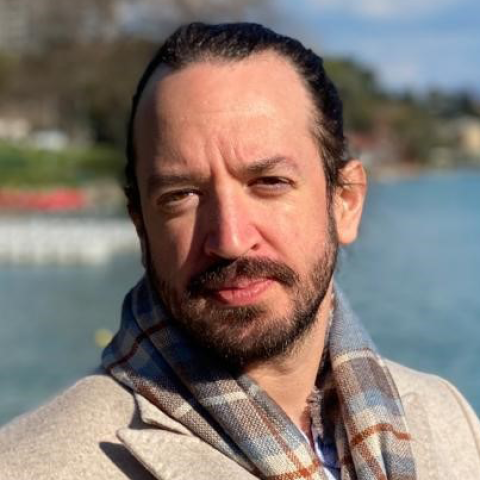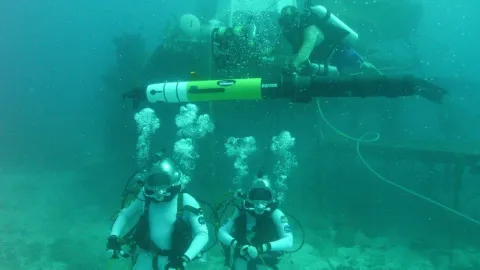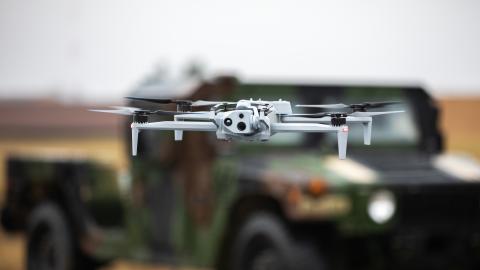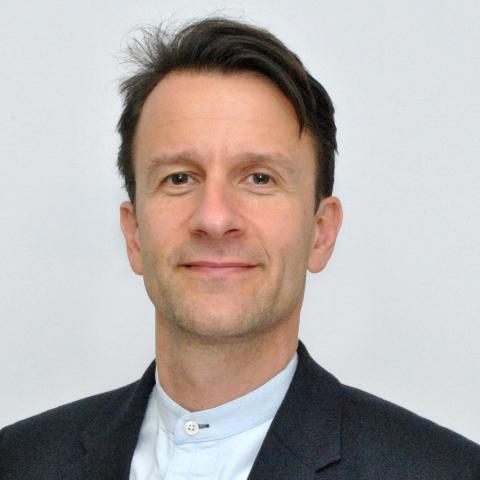“Bye-bye Iraq,” cheers a Kurdish man as our group leaves the referendum polling station in Erbil on September 25. While the mood within Iraqi Kurdistan was exuberant, the resistance from Baghdad and wary neighbors was equally palpable. Moving further toward independence might prove much harder for the Iraqi Kurds than just shouting goodbye.
As part of a group of policy experts organized by Ranj Alaaldin of Brookings Institution, we traveled to Iraqi Kurdistan during the referendum and held meetings with key political and security stakeholders.1 We also visited the disputed territories in Kirkuk and the Nineveh Plains. The following are observations on the path forward and on the policy dilemmas faced by the Kurdistan Regional Government (KRG), Iraq, and the United States.
The Independence Referendum
The referendum was strongly supported in Iraqi Kurdistan, where 93 percent voted in favor of independence, with a turnout near 73 percent of the population. Kurdish flags, adorned with a shining sun, decorated every building and car as we traveled. The outside world—apart from Israel, whose flag we saw brandished in the streets of Erbil—opposed the referendum. Turkish president Recep Tayyip Erdogan came out strongly against the referendum, threatening that there would be repercussions. Iran, which has no interest in stoking thoughts of independence in its local Kurdish minority, opposed the vote in a similar vein. The referendum put Iraqi prime minister Haider al-Abadi under pressure in Baghdad, and the Iraqi government is now restricting international flights to the region.
On the day of the referendum, what we witnessed seemed fair and credible, though admittedly, our impressions were based only on visits to several polling stations at local schools around Erbil. The ballot’s text was written in four local languages—Kurdish, Arabic, Assyrian and Turkish—and thus was accessible to ethnic and linguistic minorities. The election day passed without major incident or violence—a rarity in the Middle East.
The anti-ISIL coalition, led by the U.S., opposed the referendum. One reason was its likely negative impact on the continued fight against Da’esh. The Kurdish leaders we met assured us that it would not have this effect. KRG interior minister Karim Sinjari, whom we met with in Erbil, explained that they “will continue the fight against Da’esh.” According to what we were told, around 4,500 Peshmerga soldiers were taking part in the operation against the ISIL stronghold of Hawija. Security cooperation between the Peshmerga and Iraqi forces continued smoothly, despite the heated rhetoric from Baghdad during the referendum.
In our meetings with Kurdish representatives, they underlined how the growth of Da’esh was linked to Iraq’s internal sectarianism and the failed policies of Nouri al-Maliki. One put it this way: “Kurds have the Peshmerga, Shiites have the PMF (Popular Mobilization Forces), and the Sunnis have ISIL.” This also emphasizes the need for reconciliation and inclusion of Sunnis, if Iraq is to unite again as a country.
Directing themselves to American audiences, several of our interlocutors underlined Iran’s support of Baghdad and the influence of Shiite sectarianism. To show the extent of this support and influence, one representative explained that the next Iraqi prime minister will be determined by “Qasem Soleimani and [Ayatollah Ali] al-Sistani.” Accordingly, they expressed disappointment that the current U.S. administration, with its strong focus on curbing Iran, has sided with Baghdad instead of the Kurds, who are loyal U.S. partners. The rhetorical question was posed several times: Does Washington really want to support an Iran-controlled regime against the Kurds?
Another objection voiced by American ISIL envoy, Brett McGurk was that the referendum was not negotiated with Baghdad and thus is illegitimate. Our Kurdish interlocutors underlined that the referendum was not against the Constitution and that the Constitution remained unfulfilled. We were given a document with a list of fifty-five Iraqi breaches of the Constitution to underscore this line of argument. Masrour Barzani, the chancellor of the Kurdistan Region Security Council, described the situation succinctly: “Iraq is neither free, stable, nor democratic.” Barzani sees few future opportunities for Kurdistan inside an increasingly dysfunctional Iraq.
Internal Cohesion and Kurdish Election Prospects
Some external observers and policymakers in the West initially expected the referendum to be postponed due to internal Kurdish disagreements. The Parliament of Iraqi Kurdistan had not met in almost two years, so how could Kurdish parties agree on conducting a referendum? Yet despite internal differences, the main Kurdish parties came together. When, two days before the referendum, Barzani spoke to a mass gathering in the town of Suleimani, the stronghold of opposition party Patriotic Union of Kurdistan (PUK), the stadium was packed. An announced anti-protest demonstration never gained ground. There is no doubt that Barzani and the Kurdistan Democratic Party were strengthened by the referendum.
The deadline for conducting the next elections in the KRG is early November, but few expect the elections to take place. We learned that the PUK, because of internal splintering, is eager to postpone the elections as long as possible. Most of our interlocutors underlined that elections will take place within the next six months, meaning they could closely trail the Iraqi parliamentary elections.
There is much speculation around President Masoud Barzani’s future, with some believing that he will withdraw. The referendum stands as his successful legacy to the Kurds, one representative explained to us. While President Barzani has flouted that he might not nominate a family member as successor, the future remains unclear. One potential outcome is that the November deadline will be used to appoint an interim leader who leads the country into the next elections.
While the referendum briefly dissipated the internal rivalries between the Kurdish parties, a stable and long-lasting independence will require more than hosting a referendum. An internally functioning democracy and governance structures should be a prerequisite.
Next Steps: Toward Independence, Dialogue, or Conflict?
The next Kurdish step is not a one-sided declaration of independence. The day after the referendum, President Barzani spoke with excitement but also a conciliatory tone toward Baghdad, and expressed the need for dialogue.
“The referendum doesn’t change anything yet,” admitted a top official. It is a symbol and signal to Baghdad that there should be serious negotiations. This is also one of the requests from Kurdish leaders to the U.S. and the international community: Help us get Baghdad into real negotiations.
No official deadline for negotiations or a declaration of independence has been announced. Unofficially, people talk about a one-to-two–year deadline, so that talks with Baghdad do not become endless and without result.
There is a clear-eyed understanding that Abadi is under pressure after the referendum and that Maliki and other extreme elements are pushing him to act forcefully. This pressure was illustrated by Baghdad’s ban on international flights into Iraqi Kurdistan (we just managed to get out of Erbil) and the sudden agreement with Iran and Turkey on Iraqi territorial integrity. Still, a member of the Kurdish negotiating team emphasized that Abadi has a deep understanding of Kurdistan.
When we asked about whether the Kurds have leverage to entice Baghdad into negotiations and a move toward independence, few specific bargaining chips were mentioned. The Kurds’ main leverage appears to be external pressure (that is, from the U.S.).
We met with one of the PUK’s chief negotiators, who had returned from Baghdad the day before the referendum. He expressed optimism about resuming dialogue after a cooling-off period. “You don’t taste a soup at the same temperature as it is cooked,” was his Kurdish proverb for the current period.
On the substance of the dialogue, Kurdish leaders are sufficiently pragmatic to realize that independence is a non-starter with Baghdad. Falah Mustafa Bakir, minister in charge of foreign relations, explained that the Kurdish negotiators will start out with an open agenda so as not to box anybody in.
The vast majority of Kurdish representatives we spoke with ultimately want independence. In that sense, the referendum was a crossing of the Rubicon. Still, some also mention a confederation as a possible end-result. One such voice was Najmaldin Karim, the Kurdish governor of Kirkuk, the disputed city. A confederation would also open the possibility for more autonomy for the Sunnis inside Iraq, where political inclusion is vital after years of sectarian tension under Maliki and Da’esh.
The disputed territories remain a challenging issue, specifically Kirkuk, which is ethnically and religiously divided among Kurds, Turkmens, and Arabs. Article 140 of the Iraqi Constitution deals with Kirkuk, and states that territories detached from Kirkuk under Saddam Hussein should be reattached and that displaced Kurds should be free to return. However, none of the steps mentioned in Article 140 has been taken.
Governor Karim explained that normalization must be the first step, followed by a census of the Kirkuk population. The flag of Kirkuk, depicting three flaming oil fields, demonstrates a major motivating factor: oil revenues. One pragmatic top Kurdish official did mention that the final model for Kirkuk could be joint custody, combined with joint sharing of oil revenues. The general Kurdish preference seemed to be for a referendum after normalization, based on a majority vote.
No Kurdistani we spoke with wanted conflict, but there is an awareness that the referendum could exacerbate tensions and cause a conflict between the Kurds and the Hashd al-Shaabi Shiite umbrella militia. Christians and minorities could become collateral damage in the disputed territories. We observed this risk of conflict firsthand as we visited Alqosh, a predominantly Christian village in the Nineveh Plains. We met two local Christian Peshmerga who had signed up to defend their village. One of them had been further afield fighting Da’esh and proudly showed us Instagram recordings of the fighting. Other young men from the same village have joined as Christian militia members in the Hashd al-Shaabi. In the event of a conflict, Christians from the same village might end up fighting each other. Concerning the referendum, our group asked residents of Alqosh if they wanted to be part of an independent Kurdistan or Iraq. One replied he would rather move to the U.S. or Europe. In another part of the Nineveh Plains, in the predominantly Christian town of Bartella, the Iranians have built a new school whose unofficial name is the Imam Khomeini school.2 The minorities of the Nineveh Plains are under severe pressure also after the demise of Da’esh.
Regional Reactions
“We haven’t chosen Turkey and Iran as our neighbors, but we have to deal with them,” said one Kurdish official to us. Jokingly, Kurds say they wish they could be teleported out of the region and away from a circle of threating neighbors.
The referendum did have the rare effect of uniting Turkey, Iran, and Iraq in their condemnation of it. Turkey reacted strongly against the referendum, despite the direct contacts between Erdogan and KRG president Barzani. The day after the referendum, Erdogan threatened that the Kurds in Iraq “will be left without food and clothing.”3 This seems so far to have been mostly bluster, and trade will continue. Our Kurdish interlocutors also pointed out the mutual economic interdependence and how much trade with Iraqi Kurdistan contributes to the Turkish economy. The only real worst-case scenario, as one advisor confided, would be if Turkey closed the tap on the oil pipeline. That would be detrimental to the Kurdish economy, already strained after the government stopped receiving funds from the Iraqi federal budget.
Kurds realize and expect that Erdogan’s posturing is necessary because he is seeking nationalist votes from the far right. One interlocutor did point out that the KRG helped Erdogan garner votes for the constitutional referendum in the Kurdish areas of Turkey and that if Erdogan permanently abandons his relations with the KRG, this electoral support can be reversed. The KRG feels that it has given sufficient assurances to Erdogan that if it gained independence, this would not be the beginning of larger Kurdish claims against Turkey. From the KRG’s perspective, its cooperation with the Turks against the Kurdistan Workers’ Party (PKK) stands as testimony to this.
Iran was vehemently against the referendum, but several of our interlocutors suggested that Iran hid behind Turkey, hoping it would take strong actions so that Iran would not need to disrupt its own lucrative economic relationship with the KRG. Few of our Kurdish interlocutors saw any possibility of Iran changing its calculus on Iraqi Kurdish independence. Iranian interests in Iraq, including the land connections facilitated through Hashd al-Shaabi, create proximity and potential for conflict with Kurdish-held territories in the Nineveh Plains and near Diyala. Iran’s strong influence in Baghdad also makes it a key player, with many paying close attention to Iranian rhetoric and actions against Erbil. In Iraqi Kurdistan, it is common knowledge that Iran controls several capitals in the Middle East, including Baghdad.
Israel is the sole country to have come out in favor of Kurdish independence. The Kurds are appreciative of the support, although there is a growing realization that their Iranian and Arab neighbors will use the support to claim that Kurdistan is a puppet of Israel.
Russia’s involvement is an additional factor in the outcome of the Kurdish referendum, given its new economic relationship with the KRG, which is based on several oil pipeline deals secured by Rosneft. Our Kurdish interlocutors also appreciated the official Russian reactions to the referendum, which were trying to please both sides and talked about the national aspirations of the Kurds. Simultaneously, a well-connected Kurdish official hastened to add that the Kurds do not want to get caught up in any U.S.-Russian power play.
U.S. Policy Dilemmas and Options
“We didn’t let you down, don’t let us down now,” said a top official regarding Kurdish support for the U.S. and the fight against Da’esh. At numerous meetings, it was repeatedly mentioned that not a single U.S. soldier died in Iraqi Kurdistan, as opposed to the rest of Iraq.
The U.S. administration opposed the referendum, although some members of Congress welcomed it. The U.S. priority has been the fight against Da’esh, Iraq’s territorial integrity, and bolstering Prime Minister Abadi. There is concern in Washington that Abadi might not become prime minister again after the elections in early 2018. These priorities might well be the right short-term calculations, but the Kurdish question will not disappear in Iraq. It may be exacerbated by events in Syria and by how the Syrian Kurds increase local autonomy following the military defeat of Da’esh.
The U.S. administration should consider a more active, behind-the-scenes role in mediating between Baghdad and Erbil when tempers have cooled sufficiently. With the Kurds, the U.S. should use its influence to prevent the deadline for declaring independence to be announced publicly, which would sour negotiations immediately. From the Iraqi perspective, the U.S. should endeavor to address Kurdish grievances while negotiating on budgets and security. The U.S. could demand closer involvement in military assistance passed through Baghdad to ensure that it is actually delivered to the KRG and the Peshmerga forces.
The U.S. could also help develop options for a confederation as the end state of negotiations. Such a model could be the solution to securing Iraqi territorial integrity. Beyond serving as an option for a Kurdish-Iraqi partnership, a confederation could also establish increased autonomy for the Sunnis, whose political exclusion was part of the fertile ground for local acceptance of Da’esh.
Then there is the question of curbing Iran’s influence, a policy goal of this U.S. administration. If Baghdad is closely aligned with Tehran and will continue to be so for the foreseeable future, then Iraqi Kurdistan might be the better long-term bet for American influence in the region.
During the trip, we also confronted issues regarding stabilization after the defeat of Da’esh. One question is about security, particularly for the minorities in the Nineveh Plains. Could local grassroots forces gradually integrated under either the Iraqi Security Forces or Kurdish Peshmerga umbrella be a way forward? What is clear is that in the current situation, of continued uncertainty and insecurity, minority refugees are not likely to return.
Another question is the important linkage between stabilization and reconciliation. Beyond short-term stabilization in the sense of restarting essential services (water, electricity, and food), there is a need to combine these actions with larger efforts to reconcile the community, with a particular focus on minority communities, such as Yezidis and Christians, which were decimated by the Da’esh terror regime.
“We need sovereignty for protection,” concluded Masrour Barzani in his meeting with our group. His historical lesson was that the world mobilized for Kuwait in 1990 because it was a UN-sanctioned state, but not for the Kurds as they were gassed by Saddam Hussein. The independence referendum has bolstered the Kurds internally but has increased outside pressure and hostility. Time will tell if the Kurds of Iraq have other international friends than the mountains.















